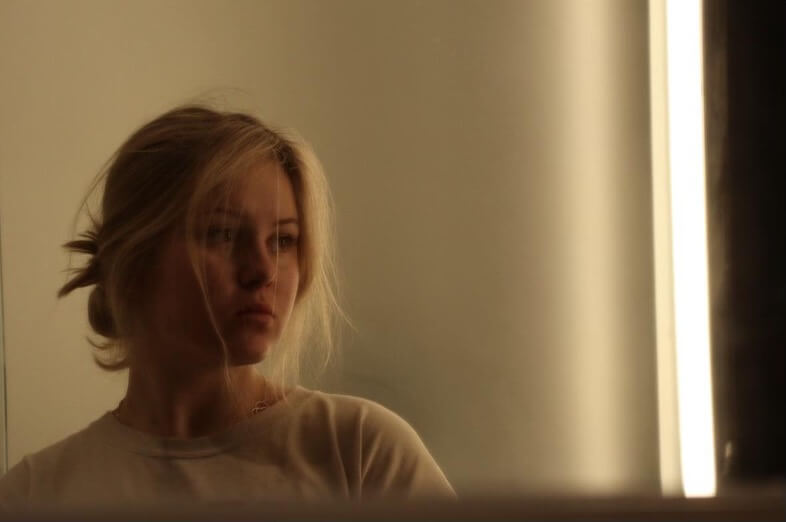
Aspiring artists in the Canadian music industry: A feature with Taryn Rose
It is long understood that the Canadian music industry has been dwarfed by our American neighbours to the south. While this may be true, that does not mean Canada is lacking in the supply of young talent.
Taryn Rose, 19, is a Toronto-based vocalist and musician who is redefining success and what it means to truly “make it” as an aspiring artist. She is a multi-instrumentalist, proficient in the piano, guitar, ukulele and saxophone and has found creative ways to incorporate all of these into her original music.

Taryn Rose has recorded three originals professionally: “Million Scars,” “I Don’t Wanna Choose,” and “Bottled Up Emotions,” a music video for “Million Scars,” and more than 30 other original songs.
She won first place in the Open Mic Canada singing competition and is currently navigating the launch of a live entertainment business where she performs at restaurants, private events, dock socials, golf clubs, retirement homes, hotels, bars and cafés.
Taryn Rose is currently an undergraduate student studying business at the University of Western Ontario. When asked about how she juggles various commitments and responsibilities, she returns to an inspiring mantra: “There is always time for music.”
Youth Mind: When did your passion for music begin?
Taryn Rose: I’ve been performing music and singing as long as I can remember. Growing up, I was inspired by my elder sister who always seemed to know all the lyrics to songs on the radio … Her job was remembering the lyrics, and mine was carrying the tune. I began playing the piano at the age of nine and the guitar at 14. It’s become a lifelong outlet. Whenever I’m feeling stressed out, I will sit down at my piano and just play.
YM: What would you say inspires and motivates your music?
TR: I am inspired and motivated by my family. My parents have fiercely encouraged me to perform, keep learning new songs and hone my art. I like to call my mom my manager, although I personally manage my bookings, and my dad my vocal coach. Prior to their passing, my grandparents were also a big inspiration. Although they themselves were not “musically inclined,” they had an ear. I have always relied on their honest feedback in telling me when I’ve missed the mark with a song. Whenever my family attends a performance, I know I play a little harder, waiting for that hard-to-come-by smile of approval. I often perform for my 100-year-old great-grandmother at her retirement home. I’ve been volunteering performances in these spaces for the past five years and am continually motivated by the positivity it brings to these community members.
YM: What’s the most notable thing you’ve learned through your music so far?
TR: Technical training is key. Breath support and warmups are important. I didn’t believe it for the longest time until I started seeing improvements. I’ve also spent a great deal of time studying musical inspirations such as Lady Gaga, Adele, Elton John and Janis Joplin. What is so amazing about them is that they are doing what they want to be doing and saying what they want to say. This unapologetic and honest expression is what makes them unique. They are bending the rules and marking their own paths. This is something I’ve learned to aspire towards in figuring out what makes me unique as an artist.
YM: What do you perceive as the greatest barrier to your continued success?
TR: I’ve always been a big believer that challenges only become barriers if I perceive them to be barriers. I broke my leg a few years ago and was so discouraged that I was unable to sit upright at my piano to even play a single song. This is when I discovered I could press the piano pedal with my left leg, while elevating my broken right leg. I believe that the greatest potential for growth and development is found in challenge and adversity. As for music, struggle can become a great source of artistic inspiration!
YM: How did COVID-19 impact your music?
TR: Although the pandemic created a barrier to social interactions and live performances, it created a unique opportunity for me to dedicate more time and headspace to creativity. I learned to promote myself on social media posts and TikTok and took a deep dive into learning about the music industry and what really goes into production.
YM: Young aspiring artists are often told they’ll never “make it.” How would you respond to this?
TR: I’ve always known “making it,” in terms of making a living with music, is an uphill battle. To believe otherwise would be somewhat naïve. Canada’s youth are teeming with untapped talent. The reality is there is a lot of great competition out there. That’s why I don’t like to look at my passion for music as a competition. I am simply going to continue remaining true to myself and perform as much as I can. If people feel my music speaks to them, I welcome them to come along for the ride. It’s important to re-define “making it” according to your individual circumstances, goals, and values. For me, I will know I’ve “made it” when I can afford to purchase my own grand piano, create a recording studio in my home and produce my own original music. My tip jar at performances says, “For when I buy my first grand piano.” I could just as easily have a “shack” as a home … as long as I have my guitar and decent acoustics!

I encourage aspiring artists to chase their passions, but to also create time and space for other things like school. It’s always good to have a backup plan when it comes to the music industry. That doesn’t mean you aren’t fully committed or that you aren’t giving it your all. And let’s just say you do “make it” in the industry in the traditional sense – now the worst-case scenario is you’re both educated and musically talented!
About the author

Miriam Hanson
Miriam is a writer for Youth Mind. She is a graduate student at Western University studying political science and international relations. She has written for Women Quest with the Ontario Learning Development Foundation (OLDF), Sidebar with the Diversified Dispute Resolution Institute of Canada, and Feminism Unfiltered. When she’s not writing, you’ll find her planning her next trip itinerary. She’s happy to be back writing with the OLDF team this summer!






